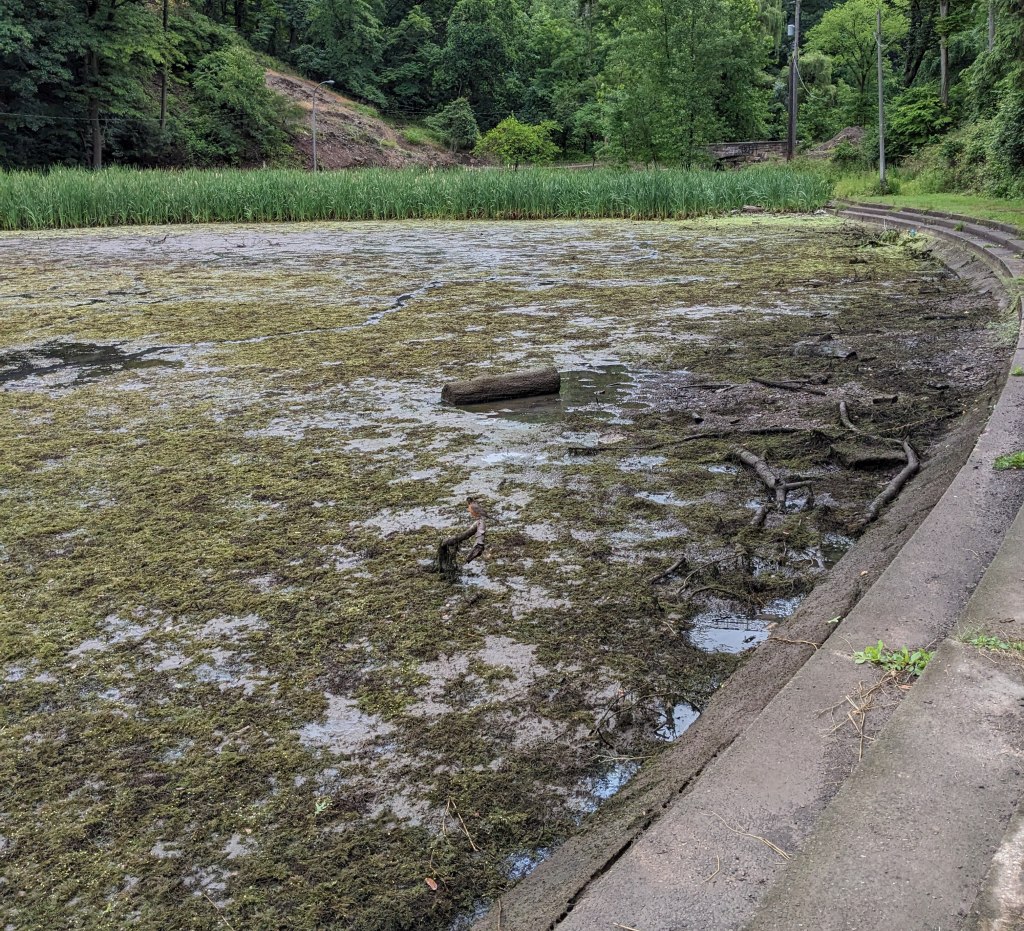
27 June 2023
On my Friday morning walk in Schenley Park (23 June 2023) the first thing I noticed from the Upper Trail was that Panther Hollow Lake looked really odd. When I got down to the edge I found out why. The lake had drained out, leaving half of it a sea of mud.
Panther Hollow Lake was built in 1892 by damming Panther Hollow Run and directing its outflow to a sewer pipe containing its original drainage, Four Mile Run, plus sewage. Last week something went wrong at the outflow point and the lake emptied.
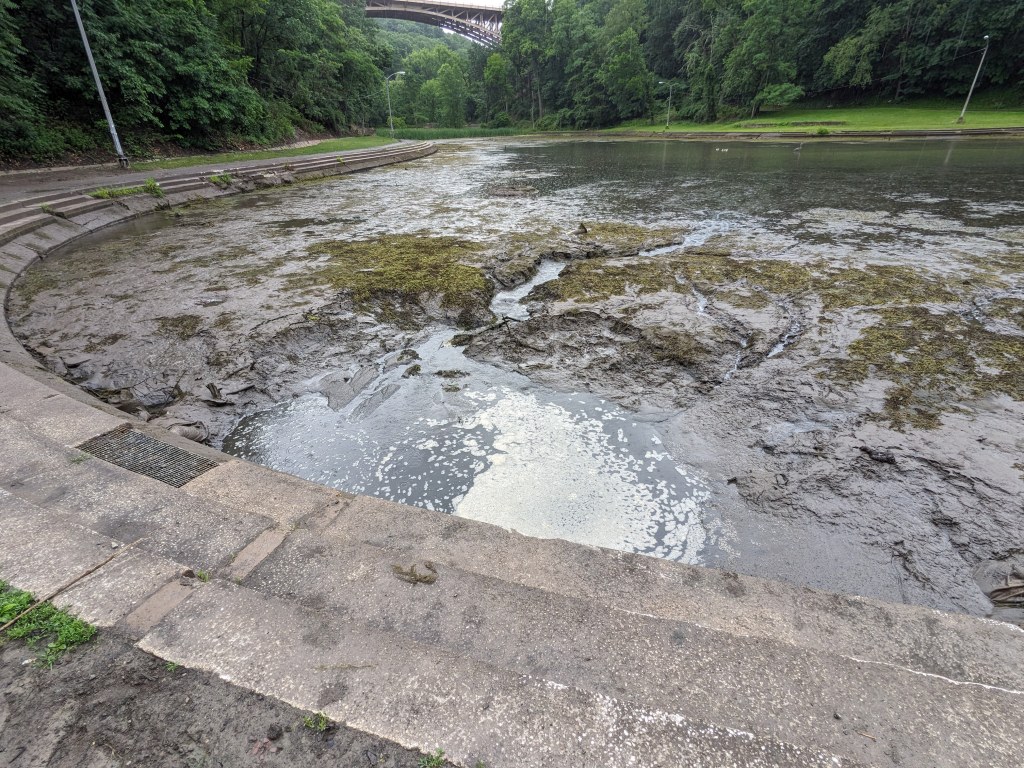
Within 15 minutes of my Friday call to Pittsburgh 311, employees from two City Departments arrived on the scene. By mid-morning the Department of Public Works and Pittsburgh Water and Sewer Authority were working to fix the outflow.
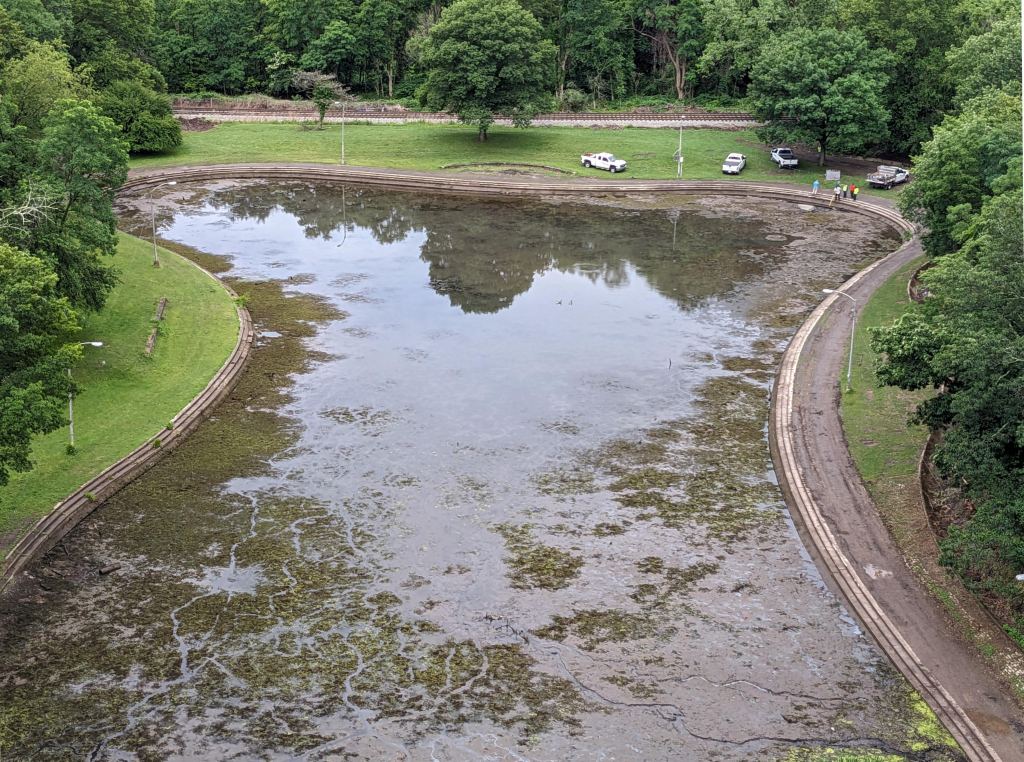
Today (27 June) Panther Hollow Lake is probably filling again but I’m out of town and haven’t had a chance to see it. If you visit the lake this week, leave a comment to let me know how it looks.
Meanwhile, this episode does not fix Panther Hollow Lake’s underlying problems of summer algae blooms and its unnatural concrete edge that prohibits lakeside vegetation. The algae blooms in part because the lake is shallow. The lake is shallow because it’s passing through the normal life cycle of a lake, illustrated in this diagram from NHLakes: The Life of a Lake.
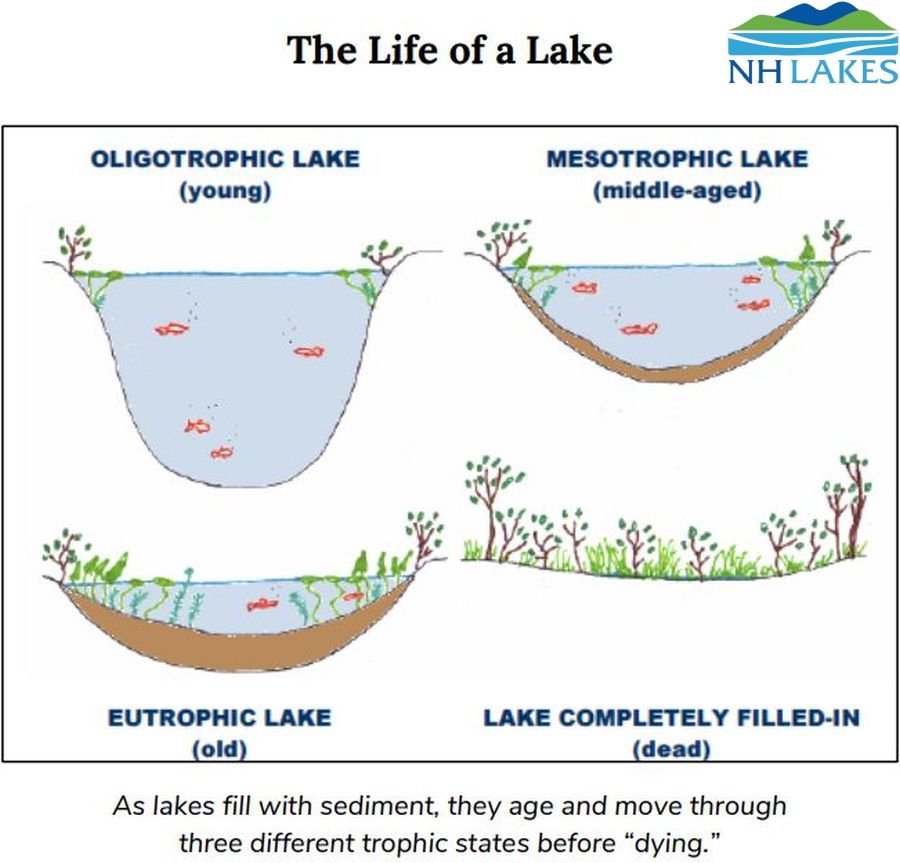
Once formed, lakes do not stay the same. Like people, they go through different life stages—youth, maturity, old age, and death. All lakes, even the largest, slowly disappear as their basins fill with sediment and plant material. The natural aging of a lake happens very slowly, over the course of hundreds and even thousands of years. But with human influence, it can take only decades.
… Eventually, the lake becomes a marsh, bog, or swamp. At this point, the drying-up process slows down dramatically; limnologists aren’t sure why. Eventually, the lake becomes dry land.
— The Life Cycle of Lakes, National Geographic
At this point eutrophic Panther Hollow Lake is “old” and somewhat like a marsh, a state that can last a long time without much change. But the lake’s 130 year history is filled with human intervention, from construction in 1892, through two “renovations” (1909 and 1957), and plans made in 2010-2016 to renovate again. Those plans fell through last November and put Panther Hollow Lake on hold.
Last Friday’s drain-out will likely restart the planning process. Meanwhile, the marsh attracted two rare birds in late April (American bittern and sora) and still has nesting red-winged blackbirds. On Friday the remaining “puddle” at the deep end held two Canada geese and a great blue heron, both unbothered by low water.
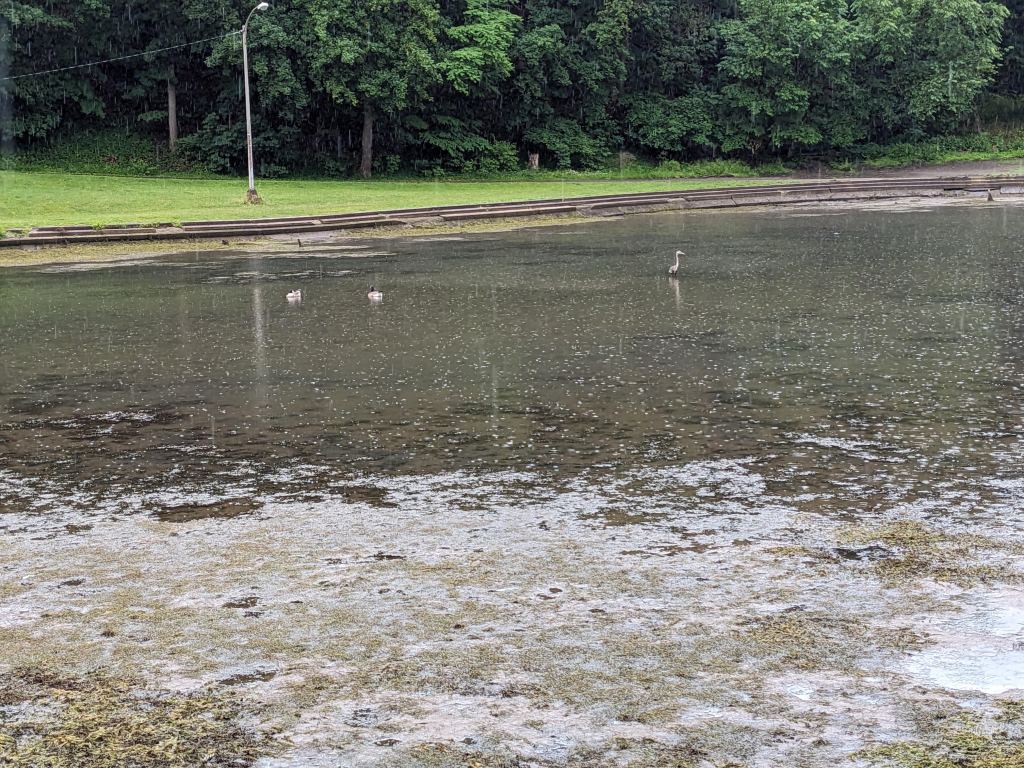
Curious about the life stages of a lake? See:
- National Geographic: The Life Cycle of Lakes
- In New Hampshire, NHLakes.org: The Life of a Lake
(photos by Kate St. John, diagram courtesy nhlakes.org)
So informative, thank you
off topic as usual: saw the heron at the lake today, and wondering which rookery it comes from? Or do they “join” rookeries at all? Do they keep living there after nesting? Is there a rookery closer than Oakmont or Big Sewickley?
Kathy, I don’t know which Riley the heron came from but there are probably places closer to the Schenley than the ones we know of.
I hope the frogs make it through this.
Thank you for making the call and maybe saving them.
Lived in Pittsburgh most of my life, went to college at Pitt, and only about 3 weeks ago walked around the lake down there. I’m amazed how pretty it is down there, I hope that lake can survive, but man-made is a little tough at times…